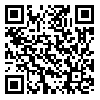BibTeX | RIS | EndNote | Medlars | ProCite | Reference Manager | RefWorks
Send citation to:
URL: http://rehabilitationj.uswr.ac.ir/article-1-2078-en.html
2- Department of Occupational Therapy, School of Rehabilitation, Arak University of Medical Sciences, Arak, Iran. ,
3- Department of Speech Therapy, School of Rehabilitation, Arak University of Medical Sciences, Arak, Iran.
Objective Caregivers of children with cerebral palsy (CP) are faced with many challenges in self-care, treatment follow-up, educational care, and personal leisure time. Therefore, they should be trained for resolving their needs during caregiving. This study aimed to determine the priority of needs of mothering handling training for family caregiving of children and youth with CP at home based on the family-centered approach.
Materials & Methods This cross-sectional study was performed on 186 children with CP (aged 4-12 years) from the rehabilitation clinics in the city of Arak. The participants were chosen by a convenience sampling strategy. Clinical tests such as the Manual Ability Classification System (MACS) and the Canadian Occupational performance measure were used to assess the level of fine motor function and determine the priority of needs of children with CP, respectively. The data were analyzed using statistical tests including two-way ANOVA.
Results In this study, there were 89 girls and 97 boys with CP with a mean age 7.52+2.38 years. The CP types were as follows: spastic (67.7%), dyskinetic (13.9%), ataxic (5.9%), and hypotonic (4.8%). The most important priority of needs of mothering handling training was self-care and care related to children with CP in the level of V of MACS. The results showed that the priority of needs of the mothering handling training based on occupational performance (self-care, productivity and play/leisure) were toileting in the level of IV of MACS. There were no significant differences in the priority of needs of the training in the areas of sex and level of fine motor function (P>0.05); however, there were significant differences in age and self-care (P<0.05).
Conclusion The results showed that the highest priority of needs of mothering handling training was self-care, feeding, toileting, and functional mobility. However, the needs of mothering handling training enhanced with increasing severity of fine motor function lesions and age. The simultaneous relationships between age and MACS levels in children with CP have no effect on the priorities of mothering handling training. Organized training of families and caregivers about needs of mothering handling training and proper care of their children are facilitating steps in promoting the education of mothers of children with CP. It seems that the understanding and education of mothering handling for therapists responsible for managing children with CP and the education of their parents can open the way to effective caring and treatment.
Received: 13/01/2016 | Accepted: 16/04/2016 | Published: 1/10/2016
| Rights and permissions | |
 |
This work is licensed under a Creative Commons Attribution-NonCommercial 4.0 International License. |






